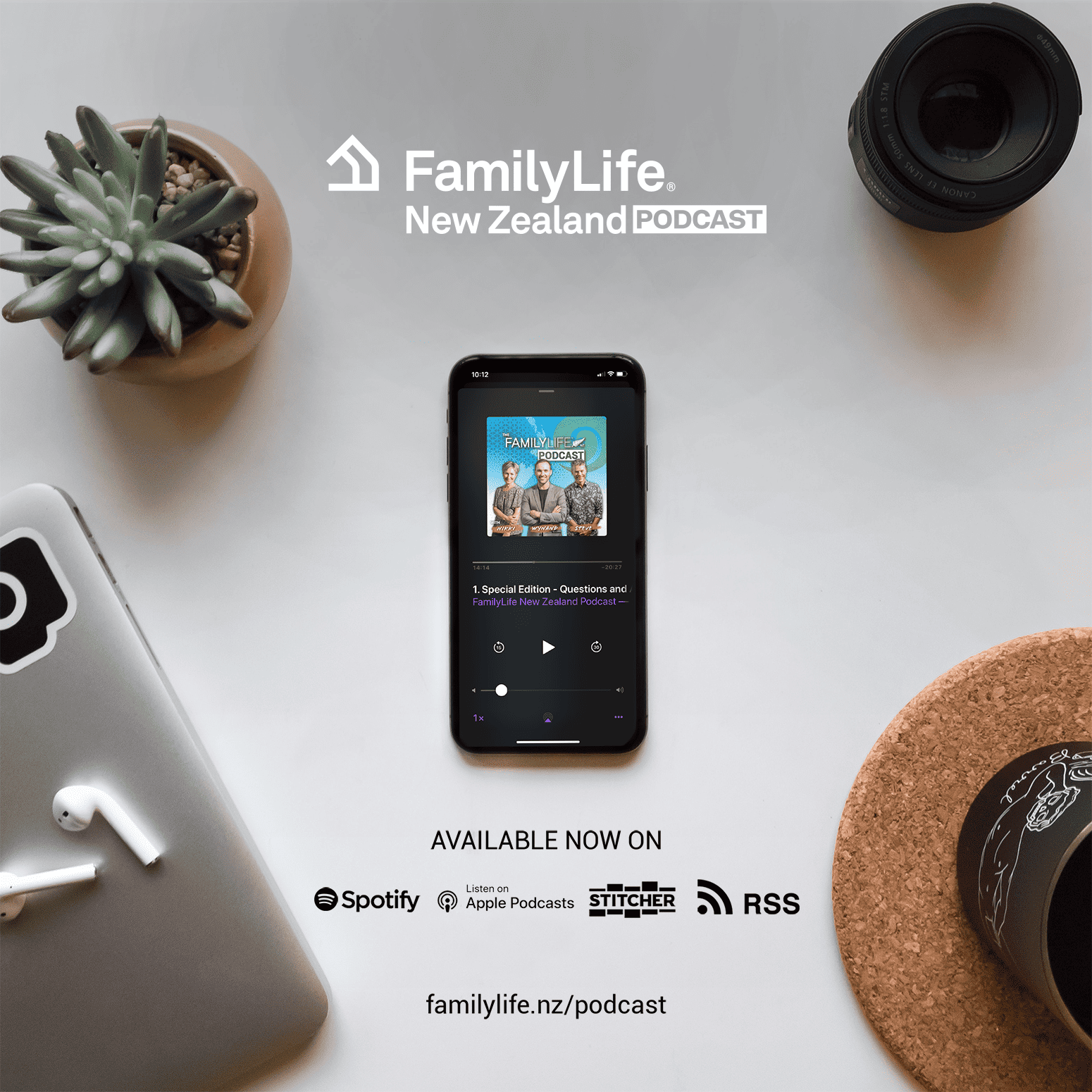The house I grew up in had an unwritten and unspoken rule; we leave the doors open. This open door policy was never directly enforced but our personal bedrooms were never shut off from the rest of the house. It was so normal that I never gave any thought to it until I left home and started flatting or living with others. (And yes, before you are worried we shut the bathroom doors!) But my flatmates would always get after me for sleeping with my door wide open.
I’m not sure why this was, but it was never an issue. Growing up there was a lot of trust between us to respect each other’s space and property. We hung out as much as possible together in the large family rooms, but if we ever needed our own space it was easily provided by going into our rooms. We were never questioned about what we were doing, but we were looked in on and cared for if needed. In return never stormed off and slammed doors behind us when we were upset or angry with each other.
And I’ve been reflecting on this throughout my first year of marriage because this is when two lives are merging into one. My husband is putting up with me leaving doors open and I’m learning we must never let the level of bananas in our house drop below two. It’s the odd traditions you grew up with that feel purposeless to the other one, but innately important to you.
I told my husband that we have to have an open door policy for each other.
Not exactly about leaving doors open in the house, but that we have to be available for one another. The only time I’ve heard about an open door policy, it was almost always in relation to my university professors claiming to be available to us at any time.
What I meant is that we had to communicate with one another openly. Which sounds and reads a lot easier than it is. Being fairly independent before getting married we both struggled to share openly about everything that went on in our day. Yet the more my husband held onto frustrations at work, it would seep like poison into our marriage unless we talked about and processed them. It was a steep learning curve for us to speak and listen in ways that supported each other.
It’s all too easy for me to listen to my husband’s work frustrations and have three solutions ready for him. At the same time I could easily get frustrated when we were talking about the same problem weeks later. Why had he not taken my awesome solutions and used them?
Communicating with each other was more than just listening and responding.
It is investing our time into each other, allowing the other safety to process out loud, and respecting that we each have a stake in it. The “what’s mine is yours” rings a bit true here. Even though my husband’s life is his own, he brings a lot of it home with him. Which is where I am, and I get front row seats to see how things end up for both of us.
We have a choice in many of these moments. To shut down and deal with it ourselves, leave the other one out because it’s not their issue, or to work as a team. We wrote in our vows to be a team, but how do you do that?
Our response is an open door policy. One that constantly needs tweaking and adjustment. But it operates on a lot of the same principles I’ve grown up with.
Asking permission
I’m not ready to field a million questions about my day the moment I step foot into the house. I need to decompress. We first heard about asking permission during the ‘Handling Conflict’ session at a Weekend to Remember Conference with FamilyLife in September. I had heard of and used the “I feel” statements in work, but the idea of asking permission hadn’t been one I’d thought of. Too often I like to charge into the conversation. I want to deal with things right away. I’ve learned to step back and ask if now is a good time for a discussion. When it’s not, I’ve learned to wait.
This works for both the positive and the negative. Sometimes I’m jumping at the bit to tell my husband about a great story and he is not in a mental space to take my excitement and make it his own. This leads me to feeling frustrated and let down. We’ve learned if we’re not ready for a large consuming conversation plenty of other topics fill in our background time – like grocery lists. But others require all of the other so they need to agree to be apart of it.
Don’t slam doors
Piggy backing on asking for permission, you have to make yourself available. As bad as my day was, if my husband has something great to share I need to be willing to listen and enjoy in his moment. To take and never give does nothing to help foster intimacy and true open communication with one another. We also don’t get to shut down. Like I said earlier, sometimes we bring home with us the baggage from our days and if we are unwilling to unpack it with our partner it can be the root cause of our negative consequences.
My husband has learned the most in this area. He made a comment at our six month anniversary (I know to be so young to be counting the months). He had always felt like an easy going person. If there was any frustrations in life, he’d simply get over it and move forward. Since being married he’s realized he has to deal with his unpleasant emotions. Just by voicing them out loud he’s realized how much he’s kept hidden. This has been a huge adjustment but it doesn’t need to be done alone. Together we’ve realized some of our frustrations with each other come from holding onto and putting too much attention on something outside our marriage. When we dig deep we realize we’re shutting out the very person knocking on the door to come in.
Great Marriages don't Just Happen
Respect each other
All our communication is better when it comes from a place of respect. It is consciously deciding what words to use and not hold onto things to purposefully bring up from the past. I’m a great planner, but my husband is not If I nag or belittle him when he’s sharing with me struggle about planning a stag do for a friend than I’ve lost him. He won’t want to share with me anymore. Instead I can listen and offer my advice, knowing that it’s his decision to take or not. At the same time my husband knows this about me and will ask for my opinion on the matter. We are team mates, we have the same end goal in mind.
Such a simple word, respect, carries such a wide variety of actions. Respecting each other means we listen if the other one isn’t ready to have a conversation. It means we understand that all our great solutions might not work for our partner. Respect means we stop and give attention to the person instead of our phones when we are having a real conversation. It also means I don’t assume my husband is trying to hurt me. If at any time I feel disrespected I need to let him know. Chances are he is simply unaware or unable to see my perspective unless I share it with him.
Trust
All aspects in a relationship are important, but trust seems to be a huge foundation piece. When trust is lost or broken it can take a lot of time and effort to restore it. Our open door policy for communication is also based on trust. We trust each other as our confidants. It is in some of these open dialogues that some of our very worst selves can be seen. My partner does not hold that against me, but knows that my imperfect self is on a journey to be better even if its tiny steps at a time. We trust that when we truly need them, they will be there for us. They also know that when we tell them this is important to us, we don’t take their time for granted. We are building our small family and learning what stays within our circle versus what gets shared out.
Trust is giving the other one space, knowing they’ll come to us when they’re ready. My go-go-go personality is great at times, but it does not help my husband process his emotions faster. And as much as I’m ready in the moment to dive in and tackle big issues, I have to sit and let him come to me. In those moments it takes a lot of trust from me to know we won’t be brushing it under the rug, but will be having an actual well-intentioned discussion at an appropriate time.
Check-in
Our open door policy is much like leaving the doors of our life open for our spouse to have access to. That means while I can still be quite stubborn in my independent ways, I’ve allowed my husband to have access to the things that weigh me down. He then knows he can, at any time, check-in to see that I am doing okay.
The excitement of marriage can take it’s toll on us newlyweds as we learn to exist near the other one, without fully engaging with them. During our dating lives, we gave each other our full attention, but they now exist in the moments that we need for ourselves. It can take time to learn it is alright to have down time without meaning we don’t value the other.
That down time can be critical for one of us to wrap our head and thoughts around a feeling that needs to be discussed. By checking in to see how I’m doing, I feel like my partner is truly listening to my problems. I also know that they will be ready whenever I am. It also holds me accountable. I’m not allowed to slam the door, because they got a foot holding it open.
Our open door policy for communication is not easy, but I would like to encourage you to look at and see how you and your partner are doing in regards to communicating with one another. It doesn’t take much for us to shut the other out, and before long we can feel like two people living in a shared space. As you look for ways to grow into and support your marriage see how an open door policy can help you.








